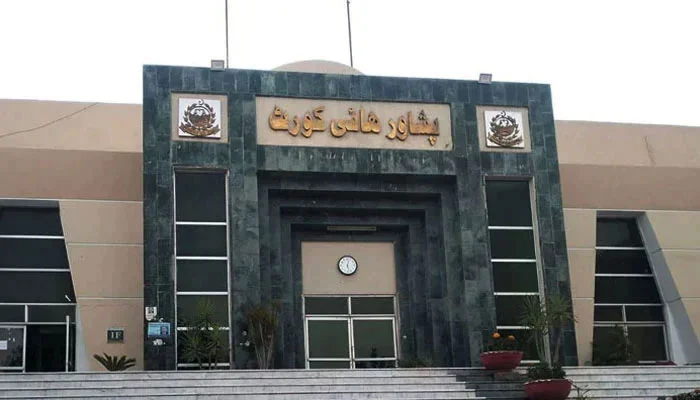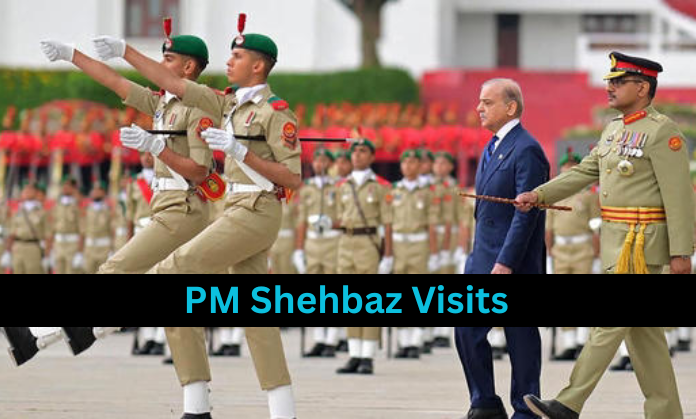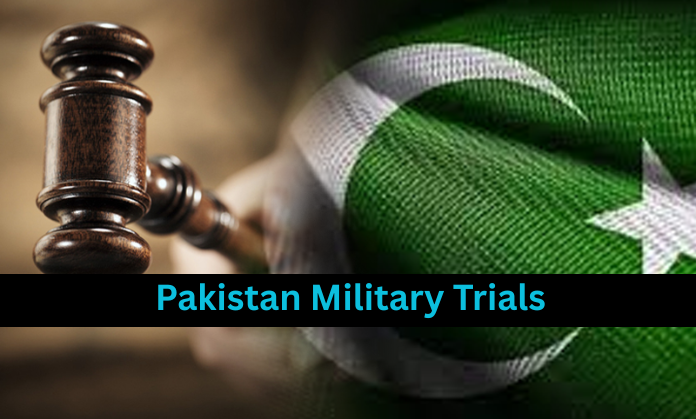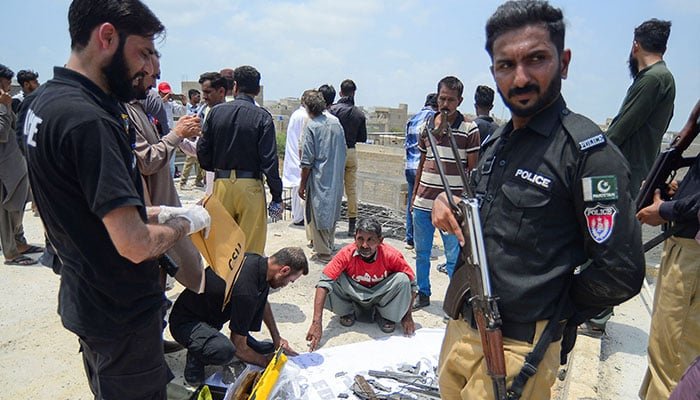Background: February 2024 Elections and the Reserved Seats Controversy
In the general elections held on February 8, 2024, PTI emerged as one of the most popular national political parties. The party won numerous general seats in both the National Assembly of Pakistan (NA) and the four provincial assemblies, including Khyber Pakhtunkhwa (KP), Punjab, Sindh, and Balochistan. As per Pakistan’s constitutional and legal framework, in addition to securing direct election seats, political parties that meet a certain threshold of representation in general constituencies qualify for additional allocation of reserved seats dedicated to women and religious minorities.
The Election Commission of Pakistan (ECP), acting as the constitutional body charged with election organization, interpretation of electoral law, and announcement of seat allocations, proceeded to distribute these reserved seats following their established formula. As a standard procedure, the allocation is proportionate to a party’s number of general seats. Yet, in March 2024, PTI was allegedly denied reserved seats that it claimed to have rightfully earned.
The PHC’s March 2024 Orders and SC Review Petitions
In early March 2024, the PHC issued interim and final orders relating to PTI’s petition against the ECP, demanding reinstatement of its share of reserved seats. On March 13 and 14, 2024, the court made judicial pronouncements directing the ECP to reassess the allocation, declaring its initial distribution invalid insofar as it failed to include PTI. By March 24, 2024, the PHC issued a formal judgment ordering the contested seats to be held in abeyance and demanding an immediate reevaluation by the ECP.
Dissatisfied parties, including the ECP and political competitors, appealed the PHC decisions before the Supreme Court of Pakistan. These review petitions, lodged under Article 184(3) of the Constitution, required the Supreme Court to revisit the PHC’s verdict—a common recourse in political matters involving parliamentary representation and proportional seat allocation.
The Supreme Court Verdict – End of PHC’s Jurisdiction
On June 27, 2025, the Supreme Court released its final judgment, quashing the PHC’s orders from March 2024. The apex court held that the PHC lacked jurisdiction to make interim allocations or direct the ECP on the reserved seat matter once the Supreme Court had taken up the review petitions. In essence, the SC declared that the original allocations by the ECP were lawful and upheld the constitutional threshold mechanism, finding no compelling reason to insert PTI into the seats distribution retrospectively.
This June 27 SC verdict had two major legal consequences:
-
Effectively Overturned all PHC orders relating to the reservation of seats in March 2024.
-
Transferred Judicial Authority, confirming that the Supreme Court was the final adjudicator in electoral disputes such as this one.
The Today’s Decision – PHC Declines to Reopen the Case
In a subsequent filing, PTI MNA Ali Asghar—who spearheaded the legal challenge—petitioned the PHC, arguing that despite their electoral success in February 2024, neither he nor PTI were heard in the original review proceedings at the Supreme Court stage. He contended the entire process was procedurally unjust: the party was neither joined as a party to the Supreme Court case nor granted a right of notice. PTI insisted the ECP had “deliberately and fraudulently” ignored their entitlement, and that the Supreme Court’s underlying conclusion — that PTI was not recognized as a parliamentary party — was based on flawed interpretations of legislative thresholds.
On July 15, 2025, the PHC took up the petition but swiftly returned it as “non-maintainable”—a legal term indicating that the court lacks jurisdiction or legal basis to proceed. The PHC bench, noting that the Supreme Court’s decision was final, held that the subject matter was entirely outside its domain once the case had been resolved at the apex judicial level. Quoting objections raised by the Additional Registrar (Judicial), the PHC observed that all legal avenues within its powers had been exhausted, and that any further challenge would be impermissible in the present court. The bench suggested that if the PTI wished to continue its legal struggle, it should do so in an alternative forum approved by law.
PTI’s Legal Arguments: What the Party Claimed
Within their petition and accompanying pleadings, PTI representatives articulated a detailed array of complaints:
-
Procedural Exclusion – PTI claimed it was neither notified nor provided an opportunity to be heard in the Supreme Court’s review petition, despite having a clear stake in the outcome. This violated its rights under Articles 10-A (fair trial) and 25 (equality before law).
-
Fraud Allegation – The party alleged the ECP “deliberately and fraudulently” excluded PTI from the seat allocation outcome, thereby breaching electoral fairness and undermining public trust in democratic processes.
-
Misclassification of Party Status – PTI maintained that the premise that they were not a parliamentary party was legally incorrect. By default, any party that wins general seats is recognized as such. PTI insisted that its seats from general elections clearly established its status.
-
Denial of Reserved Seats Threshold – The petition noted that based on the number of general seats obtained, PTI should have been awarded multiple reserved seats. The omission had effectively stripped the party of constitutionally guaranteed representation.
-
Repercussions for Representation – The impact went beyond mere symbolic deprivation: reserved seats carry legislative value and access to quotas in committees and policymaking.
Thus, PTI demanded the entire allocation process be declared null, sought full inclusion in reserved seats, and asked that MNA Ali Asghar be officially recognized by the ECP as a PTI representative occupying one such seat.
Respondents and Their Legal Defenses
The petition named a broad array of respondents:
-
The Election Commission of Pakistan (ECP) – tasked with defending the integrity and legality of its electoral processes.
-
Successful Candidate Parties – including Sunni Ittehad Council, PML‑N, PPP, JUI‑F, Jamaat‑e‑Islami, ANP, and others, who were the direct beneficiaries of the contested reserved seat allocations.
These respondents collectively argued:
-
The ECP had acted within legal bounds under Article 51 of the Constitution and the Elections Act.
-
PTI had been heard—the party participated in electoral proceedings, but failed to legally challenge the seat allocation in a timely manner.
-
Once the PHC’s own March 2024 orders were reviewed by the Supreme Court, the PHC was no longer vested with jurisdiction.
-
Granting PTI retrospective seats would unsettle the legislative composition and impact committees, reserved seats calculations, and party hierarchies steadily formed since March 2024.
Implications of PHC’s Return Order
The PHC’s dismissal of PTI’s petition as non-maintainable carries several consequences:
-
Judicial Certainty – The PHC reaffirmed the principle of finality: once a court of last resort pronounces a verdict, lower courts must accept that the issue is closed.
-
Alternative Pursuit Paths – By referring PTI toward a “relevant forum,” the PHC effectively invited the party to consider remedies such as a constitutional petition, special leave, or appeal via fresh cause—should there be new evidence or jurisprudential grounds.
-
Political Fallout – The legal defeat may weigh heavily on PTI’s legislative strength, denying it additional parliamentary seats it believes it is constitutionally due.
-
Precedential Note – The PHC’s explicit mention of the SC’s June 27 verdict underscores how electoral disputes of this nature now carry higher barriers to re-litigation in subordinate courts.
What PTI Could Do Next
PTI is likely to consider the following legal options, though each will have its own merits and limitations:
-
Review Petition Before Supreme Court (Again)
Though a rare and difficult route, seeking leave to review the June 27, 2025 verdict could be an option—especially if PTI can demonstrate compelling legal errors or constitutionally problematic reasoning. -
Constitutional Petition or Fundamental Rights Challenge
Filing under Article 199 before PHC or Article 184(3) before SC, especially citing infringement of Articles 10-A (fair procedure) or 25 (equality), might offer PTI an alternative avenue. -
New Evidence or Legal Discovery
If PTI uncovers documentation or witness statements indicating the ECP deliberately excluded them, it could form the basis of a separate suit or challenge. -
Miscellaneous Petitions or “Review from Azimat”
PTI might attempt to invoke infrequently used mechanisms that allow Supreme Court to re-examine matters if “grave injustice” is done.
Each of these paths is bound by legal doctrine, case law, and tight timeframes. Success is far from assured, and may depend on both procedural compliance and judicial disposition.
Wider Context: Pakistan’s Reserved Seats Framework and Electoral Jurisprudence
Understanding the full picture requires context on Pakistan’s legal and electoral systems:
-
Constitutional Design – The Constitution mandates reserved seats for women and religious minorities in proportional representation. These seats are filled based on party performance in general seats—an essential component of pluralism in Pakistani democracy.
-
Historical Precedence – The Supreme Court and Election Commission have repeatedly struggled with disputes over reserved seat allocations, especially when parties fail to file timely or complete nomination lists.
-
Judicial Competency Rules – Pakistani courts strictly delineate powers over election-related proceedings. The Supreme Court has held that once it dismisses a review petition, subordinate courts cannot reopen the matter unless fresh grounds are available.
-
Political Impact – Parties denied reserved seats can lose leverage in committee memberships and agenda-setting—effectively diminishing their legislative and symbolic impact.
Looking Ahead: The Political and Legal Stake
-
Immediate Impact – The June 27 verdict remains binding unless challenged via Supreme Court review. If PTI fails to gain recourse, other parties retain the contested reserved seats.
-
Legislative Changes – The process may prompt PTI to push for amendments in the electoral framework, aiming to prevent similar exclusion in future seat allocations.
-
Electoral Reforms – ECP might be pushed toward stricter deadlines, improved notification systems, and greater transparency in the distribution of reserved seats.
-
Precedent for Future Cases – This case will likely serve as authoritative guidance on jurisdiction and finality—lower courts may now invoke this precedent more readily when faced with similar seat disputes.
____________________________________________________________________________________________________________________________________
Conclusion: PHC’s Return Marks a Legal Full Stop—for Now
In summary:
-
PHC’s Return – The Peshawar High Court has formally returned PTI’s petition, declaring it non-maintainable following the Supreme Court’s prior ruling.
-
Legal Finality – The Supreme Court’s June 27, 2025 decision upholding the ECP’s allocation is binding, rendering further PHC adjudication impermissible.
-
Continuing Fight – While legally curtailed at PHC, PTI retains potential (but uncertain) options: requesting SC review, filing constitutional petitions, or submitting new evidence.
-
System-Wide Effects – The case highlights the legal gatekeeping around electoral contests, the crucial role of reserved seats, and the high bar for moving absent Supreme Court permission once the apex bench has ruled.
For now, the PTI stands legally sidelined from the contested reserved seats—a blow to its parliamentary numbers—but the political and institutional reverberations of this case may yet unfold, depending on the party’s strategic choices. Whether PTI ultimately regains its claim hinges on its willingness to pursue even more difficult legal paths and the appetite of Pakistan’s judiciary to revisit settled electoral questions.
Background: February 2024 Elections and the Reserved Seats Controversy
In the general elections held on February 8, 2024, PTI emerged as one of the most popular national political parties. The party won numerous general seats in both the National Assembly of Pakistan (NA) and the four provincial assemblies, including Khyber Pakhtunkhwa (KP), Punjab, Sindh, and Balochistan. As per Pakistan’s constitutional and legal framework, in addition to securing direct election seats, political parties that meet a certain threshold of representation in general constituencies qualify for additional allocation of reserved seats dedicated to women and religious minorities.
The Election Commission of Pakistan (ECP), acting as the constitutional body charged with election organization, interpretation of electoral law, and announcement of seat allocations, proceeded to distribute these reserved seats following their established formula. As a standard procedure, the allocation is proportionate to a party’s number of general seats. Yet, in March 2024, PTI was allegedly denied reserved seats that it claimed to have rightfully earned.
The PHC’s March 2024 Orders and SC Review Petitions
In early March 2024, the PHC issued interim and final orders relating to PTI’s petition against the ECP, demanding reinstatement of its share of reserved seats. On March 13 and 14, 2024, the court made judicial pronouncements directing the ECP to reassess the allocation, declaring its initial distribution invalid insofar as it failed to include PTI. By March 24, 2024, the PHC issued a formal judgment ordering the contested seats to be held in abeyance and demanding an immediate reevaluation by the ECP.
Dissatisfied parties, including the ECP and political competitors, appealed the PHC decisions before the Supreme Court of Pakistan. These review petitions, lodged under Article 184(3) of the Constitution, required the Supreme Court to revisit the PHC’s verdict—a common recourse in political matters involving parliamentary representation and proportional seat allocation.
The Supreme Court Verdict – End of PHC’s Jurisdiction
On June 27, 2025, the Supreme Court released its final judgment, quashing the PHC’s orders from March 2024. The apex court held that the PHC lacked jurisdiction to make interim allocations or direct the ECP on the reserved seat matter once the Supreme Court had taken up the review petitions. In essence, the SC declared that the original allocations by the ECP were lawful and upheld the constitutional threshold mechanism, finding no compelling reason to insert PTI into the seats distribution retrospectively.
This June 27 SC verdict had two major legal consequences:
-
Effectively Overturned all PHC orders relating to the reservation of seats in March 2024.
-
Transferred Judicial Authority, confirming that the Supreme Court was the final adjudicator in electoral disputes such as this one.
The Today’s Decision – PHC Declines to Reopen the Case
In a subsequent filing, PTI MNA Ali Asghar—who spearheaded the legal challenge—petitioned the PHC, arguing that despite their electoral success in February 2024, neither he nor PTI were heard in the original review proceedings at the Supreme Court stage. He contended the entire process was procedurally unjust: the party was neither joined as a party to the Supreme Court case nor granted a right of notice. PTI insisted the ECP had “deliberately and fraudulently” ignored their entitlement, and that the Supreme Court’s underlying conclusion — that PTI was not recognized as a parliamentary party — was based on flawed interpretations of legislative thresholds.
On July 15, 2025, the PHC took up the petition but swiftly returned it as “non-maintainable”—a legal term indicating that the court lacks jurisdiction or legal basis to proceed. The PHC bench, noting that the Supreme Court’s decision was final, held that the subject matter was entirely outside its domain once the case had been resolved at the apex judicial level. Quoting objections raised by the Additional Registrar (Judicial), the PHC observed that all legal avenues within its powers had been exhausted, and that any further challenge would be impermissible in the present court. The bench suggested that if the PTI wished to continue its legal struggle, it should do so in an alternative forum approved by law.
PTI’s Legal Arguments: What the Party Claimed
Within their petition and accompanying pleadings, PTI representatives articulated a detailed array of complaints:
-
Procedural Exclusion – PTI claimed it was neither notified nor provided an opportunity to be heard in the Supreme Court’s review petition, despite having a clear stake in the outcome. This violated its rights under Articles 10-A (fair trial) and 25 (equality before law).
-
Fraud Allegation – The party alleged the ECP “deliberately and fraudulently” excluded PTI from the seat allocation outcome, thereby breaching electoral fairness and undermining public trust in democratic processes.
-
Misclassification of Party Status – PTI maintained that the premise that they were not a parliamentary party was legally incorrect. By default, any party that wins general seats is recognized as such. PTI insisted that its seats from general elections clearly established its status.
-
Denial of Reserved Seats Threshold – The petition noted that based on the number of general seats obtained, PTI should have been awarded multiple reserved seats. The omission had effectively stripped the party of constitutionally guaranteed representation.
-
Repercussions for Representation – The impact went beyond mere symbolic deprivation: reserved seats carry legislative value and access to quotas in committees and policymaking.
Thus, PTI demanded the entire allocation process be declared null, sought full inclusion in reserved seats, and asked that MNA Ali Asghar be officially recognized by the ECP as a PTI representative occupying one such seat.
Respondents and Their Legal Defenses
The petition named a broad array of respondents:
-
The Election Commission of Pakistan (ECP) – tasked with defending the integrity and legality of its electoral processes.
-
Successful Candidate Parties – including Sunni Ittehad Council, PML‑N, PPP, JUI‑F, Jamaat‑e‑Islami, ANP, and others, who were the direct beneficiaries of the contested reserved seat allocations.
These respondents collectively argued:
-
The ECP had acted within legal bounds under Article 51 of the Constitution and the Elections Act.
-
PTI had been heard—the party participated in electoral proceedings, but failed to legally challenge the seat allocation in a timely manner.
-
Once the PHC’s own March 2024 orders were reviewed by the Supreme Court, the PHC was no longer vested with jurisdiction.
-
Granting PTI retrospective seats would unsettle the legislative composition and impact committees, reserved seats calculations, and party hierarchies steadily formed since March 2024.
Implications of PHC’s Return Order
The PHC’s dismissal of PTI’s petition as non-maintainable carries several consequences:
-
Judicial Certainty – The PHC reaffirmed the principle of finality: once a court of last resort pronounces a verdict, lower courts must accept that the issue is closed.
-
Alternative Pursuit Paths – By referring PTI toward a “relevant forum,” the PHC effectively invited the party to consider remedies such as a constitutional petition, special leave, or appeal via fresh cause—should there be new evidence or jurisprudential grounds.
-
Political Fallout – The legal defeat may weigh heavily on PTI’s legislative strength, denying it additional parliamentary seats it believes it is constitutionally due.
-
Precedential Note – The PHC’s explicit mention of the SC’s June 27 verdict underscores how electoral disputes of this nature now carry higher barriers to re-litigation in subordinate courts.
What PTI Could Do Next
PTI is likely to consider the following legal options, though each will have its own merits and limitations:
-
Review Petition Before Supreme Court (Again)
Though a rare and difficult route, seeking leave to review the June 27, 2025 verdict could be an option—especially if PTI can demonstrate compelling legal errors or constitutionally problematic reasoning. -
Constitutional Petition or Fundamental Rights Challenge
Filing under Article 199 before PHC or Article 184(3) before SC, especially citing infringement of Articles 10-A (fair procedure) or 25 (equality), might offer PTI an alternative avenue. -
New Evidence or Legal Discovery
If PTI uncovers documentation or witness statements indicating the ECP deliberately excluded them, it could form the basis of a separate suit or challenge. -
Miscellaneous Petitions or “Review from Azimat”
PTI might attempt to invoke infrequently used mechanisms that allow Supreme Court to re-examine matters if “grave injustice” is done.
Each of these paths is bound by legal doctrine, case law, and tight timeframes. Success is far from assured, and may depend on both procedural compliance and judicial disposition.
Wider Context: Pakistan’s Reserved Seats Framework and Electoral Jurisprudence
Understanding the full picture requires context on Pakistan’s legal and electoral systems:
-
Constitutional Design – The Constitution mandates reserved seats for women and religious minorities in proportional representation. These seats are filled based on party performance in general seats—an essential component of pluralism in Pakistani democracy.
-
Historical Precedence – The Supreme Court and Election Commission have repeatedly struggled with disputes over reserved seat allocations, especially when parties fail to file timely or complete nomination lists.
-
Judicial Competency Rules – Pakistani courts strictly delineate powers over election-related proceedings. The Supreme Court has held that once it dismisses a review petition, subordinate courts cannot reopen the matter unless fresh grounds are available.
-
Political Impact – Parties denied reserved seats can lose leverage in committee memberships and agenda-setting—effectively diminishing their legislative and symbolic impact.
Looking Ahead: The Political and Legal Stake
-
Immediate Impact – The June 27 verdict remains binding unless challenged via Supreme Court review. If PTI fails to gain recourse, other parties retain the contested reserved seats.
-
Legislative Changes – The process may prompt PTI to push for amendments in the electoral framework, aiming to prevent similar exclusion in future seat allocations.
-
Electoral Reforms – ECP might be pushed toward stricter deadlines, improved notification systems, and greater transparency in the distribution of reserved seats.
-
Precedent for Future Cases – This case will likely serve as authoritative guidance on jurisdiction and finality—lower courts may now invoke this precedent more readily when faced with similar seat disputes.
Conclusion: PHC’s Return Marks a Legal Full Stop—for Now
In summary:
-
PHC’s Return – The Peshawar High Court has formally returned PTI’s petition, declaring it non-maintainable following the Supreme Court’s prior ruling.
-
Legal Finality – The Supreme Court’s June 27, 2025 decision upholding the ECP’s allocation is binding, rendering further PHC adjudication impermissible.
-
Continuing Fight – While legally curtailed at PHC, PTI retains potential (but uncertain) options: requesting SC review, filing constitutional petitions, or submitting new evidence.
-
System-Wide Effects – The case highlights the legal gatekeeping around electoral contests, the crucial role of reserved seats, and the high bar for moving absent Supreme Court permission once the apex bench has ruled.
For now, the PTI stands legally sidelined from the contested reserved seats—a blow to its parliamentary numbers—but the political and institutional reverberations of this case may yet unfold, depending on the party’s strategic choices. Whether PTI ultimately regains its claim hinges on its willingness to pursue even more difficult legal paths and the appetite of Pakistan’s judiciary to revisit settled electoral questions.




